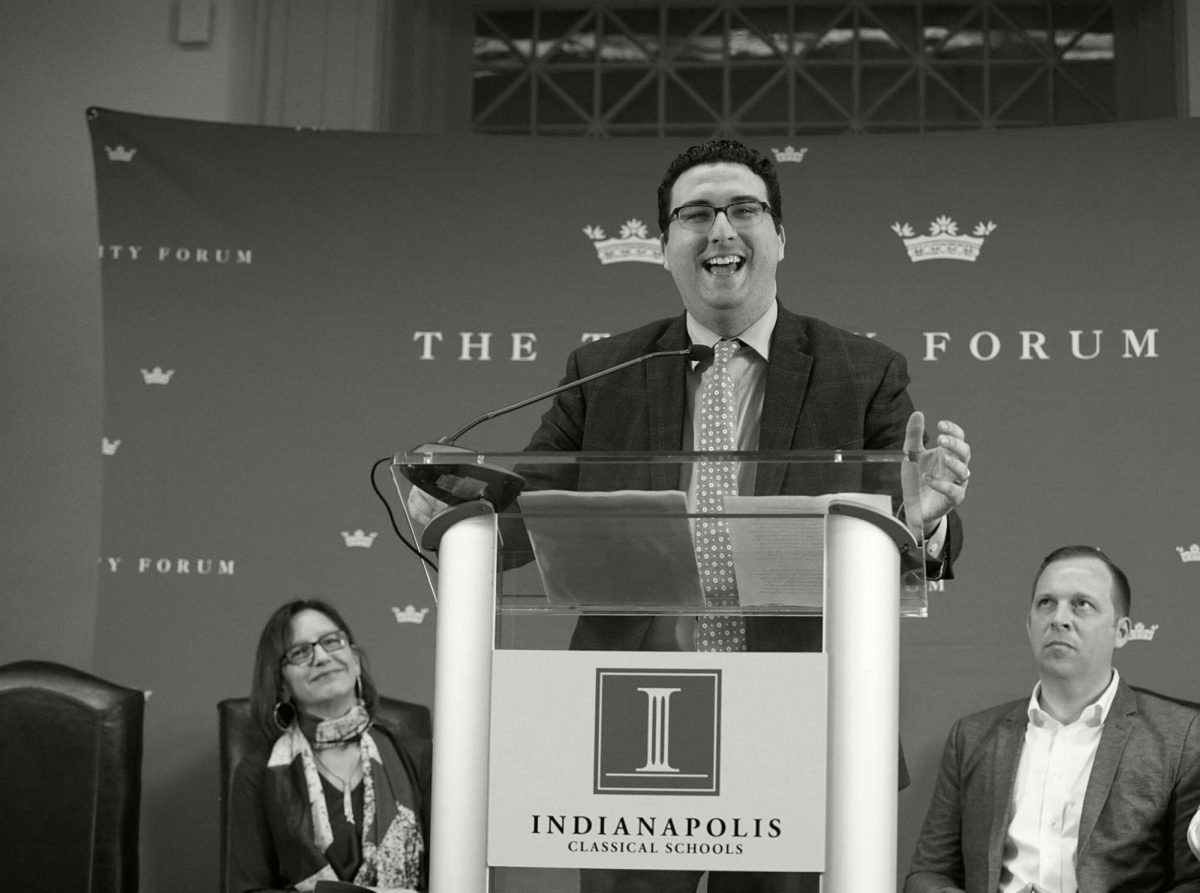This past Wednesday, Westmont hosted Michael Wear, the CEO and founder of the Center for Christianity and Public Life, who came to speak about politics in a Christian context. Wear created this nonpartisan, nonprofit organization with hopes of creating a space for guidance and awareness for the public to understand the role that Christians play in politics. Before creating the organization, Wear worked in the White House for three years under President Obama’s administration. With his experience, there are a few key messages that Wear wishes to get across to the upcoming Christian generation.
There is often pressure to get involved in politics as a Christian. This may be from family, church congregations or a personal sense of civic duty. While these are not wrong, and it is rather important for citizens to participate in politics, Wear highlights that, “you don’t need to speak out about things you don’t feel called to.” Just as each individual has been created with their own interests and passions, not all political issues and topics are meant for everyone to invest in. Oftentimes, many groups of Christians form advocacy groups for all kinds of sociopolitical issues they find pressing. Although these groups have a crucial place in society and the church, Wear analyzes that, “advocacy groups tend to add more moral burden and pressure.” Knowing that this is a possible result of these groups, it all the more shows how young Christians do not need to feel guilty for not being interested or called to get involved in a certain political issue. Wear still believes that Christians should be involved in politics with a certain mentality in mind.
He asserts that “the crisis for Christians is not that we are politically homeless, but that we thought there was a place for Christians at all.” He emphasizes that there has been an on-going misconception that America is a Christian state or that Christianity belongs in politics. Although these intentions are true and good, the logistics of America’s origin do not welcome a unitary religious foundation at a governmental level. This incorrect ideology is passed down through Christian households and Wear strongly believes that this is hurting Christians’ role in politics.
Along with this conflict, Wear points out another: “Parties have become an identity or a brand.” This issue is not exclusive to Christians but Americans all across the board. Americans now will deliberately change their opinions in order to better align themselves within their party lines. Not only does this mentality encourage a further polarization of American politics, but also a loss of self-awareness. Wear explains the way Americans, especially Christian Americans, ought to interact with politics: “You go to a party not to be influenced by the parties, but for you to influence them.” With this in mind, it is easier to understand the causes and effects of changing personal opinions to align with parties or even religions.
So far, there have only been problems. What then is the young Christian generation to do if everything that has been thought to us is now wrong? Wear emphasizes that we should not simply ignore parties and disengage with politics. One practical solution that he suggests is that when there is a political issue that sparks interest, it is best to educate ourselves through various news companies that lean right, left and center. Although this may seem almost too simple and practical, Wear believes that this one change in how we consume news will shift our view and understanding of politics.



